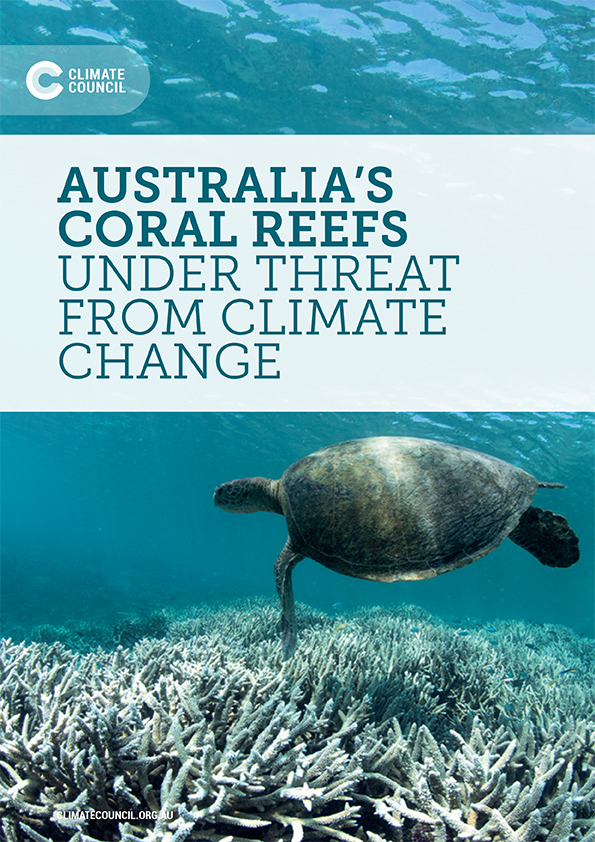Our new report reveals the influence of climate change on the Great Barrier Reef, and provides strong scientific evidence that future bleaching events are likely to become more frequent and severe.
The report found that rising global ocean temperatures, driven by climate change, has been the cause of an extremely severe bleaching event on the Great Barrier Reef.
KEY FINDINGS:
1) The longest global coral bleaching event on record is underway due to record breaking ocean temperatures driven by climate change and El Niño.
- Australia’s iconic reefs, particularly the northern part of the Great Barrier Reef, are experiencing severe bleaching.
- Climate change – driven mainly by the burning of coal, oil and gas – has caused extreme ocean temperatures, making the bleaching on the GBR this year at least 175 times more likely. At present rates of climate change, this level of bleaching could occur every two years by the 2030s.
- An estimated 36% of the world’s coral reefs have been affected by major bleaching and nearly all reefs have experienced some thermal stress.
- Climate change also threatens fish, crustaceans and other species that rely on the reefs as habitat.
2) Coral reefs are among the most biologically diverse and economically valuable ecosystems on Earth, but they are under threat from climate change.
- The Great Barrier Reef is a multi-billion dollar economic asset. Its value-added economic contribution to the Australian economy was $5.7 billion in 2011-12, supporting 69,000 jobs.
- About 500 million people worldwide rely on coral reefs for their food and livelihoods, which represent an economic asset worth an astounding $1 trillion.
- Recovery could be impossible for many of the reefs currently affected by severe bleaching if climate change is not arrested.
3) The future of coral reefs around the world depends on how much and how fast we reduce greenhouse gas emissions now and in the coming years and decades.
- At the Paris UNFCCC conference on climate change (COP21) in December 2015, the world’s nations pledged ambitious emission cuts in order to limit global warming to well below 2°C with a target of 1.5°C in the long-term.
- The pledges from COP21 need to be much more ambitious as the full implementation of current commitments would still see average global temperatures rise above 3°C.
- Australia has a critical role to play in the global effort to reduce fossil fuel emissions and protect reefs like the Great Barrier Reef.
